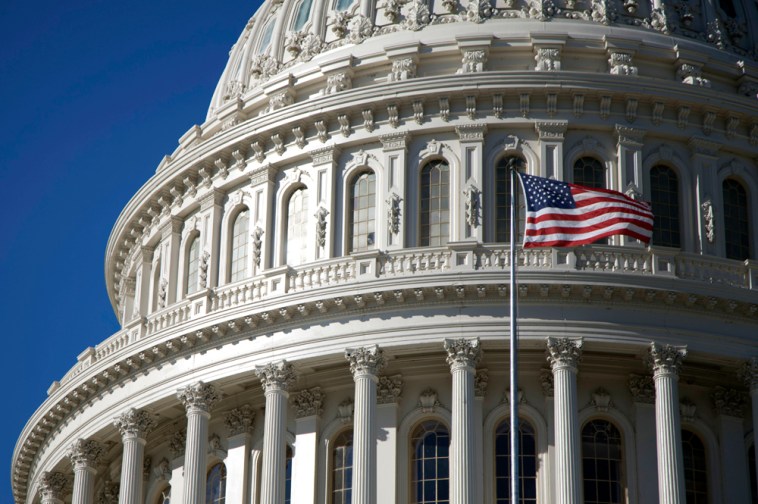What’s the outlook for the 2014 Senate elections? The Republicans once again have a chance to overturn the Democrats’ majority, as they did in 2010 and 2012.
Videos By Rare
Much attention has been focused on whether Republicans this time will nominate candidates capable of winning key races, as they failed to do in those two elections. But another interesting question is how Democrats will try to hold onto seats in Republican-leaning states even as Barack Obama maintains his strong tilt to the political left.
The lineup is certainly favorable to Republicans. Assuming the New Jersey seat now held by Republican appointee Jeff Chiesa goes Democratic in the October special election, only 14 Republican seats will be up in 2014, as against 21 Democratic seats.
Only one of those Republican seats is in a state carried by Barack Obama, Maine (56 percent Obama), and three-term incumbent Susan Collins looks unbeatable.
In contrast, Democrats have to defend seats in seven states carried by Mitt Romney and in four states that were target states in the 2012 presidential election.
Republicans seem sure to win open seats in South Dakota (58 percent Romney) and West Virginia (62 percent Romney). Well-known Democrats are avoiding both races, and they look like certain Republican pickups.
The scene is a bit different in Montana (55 percent Romney), where Senate Finance Chairman Max Baucus is retiring after 36 years. The strongest possible Democrat is folksy former Gov. Brian Schweitzer, who takes populist stands on economics and has backed the Keystone pipeline, which Barack Obama has so far refused to approve.
Two seats in the deep south held by Democrats with locally famous names are in peril, and the two incumbents seem to have different strategies.
In Louisiana (58 percent Romney), Mary Landrieu, daughter and sister of New Orleans mayors, seems to be running as a proud Obama Democrat. Her state has the second largest black percentage in the union, and evidently she’s hoping for high black turnout and just enough white votes to give her a fourth narrow majority.
In Arkansas (61 percent Romney), Mark Pryor, son of David Pryor, the representative, governor and senator whose election wins date back to 1966, seems to be running as a moderate in tune with local values. He was re-elected unopposed in 2008, but Republicans have since captured all the state’s U.S. House seats and majorities in the state legislature. And Arkansas has a much lower black percentage than Louisiana.
Both Landrieu and Pryor have run under 50 percent in recent polls against Reps. John Fleming and Tom Cotton, with Pryor a statistically insignificant 1 percent ahead of the Republican.
In North Carolina (50 percent Romney), Democrat Kay Hagan faces a different battleground. The Obama campaign vastly increased turnout in 2008 and won the state then with high black turnout and support from high-education whites.
But that coalition failed to prevail in 2012, when Romney narrowly carried the state and Republicans captured the governorship and won large majorities in the state legislature.
Incumbent Hagan won the seat in 2008 largely because of slipups by Republican Elizabeth Dole. She has come out for same-sex marriage and isn’t denouncing Obamacare. Evidently, she’s hoping to reassemble the 2008 Obama majority.
Another Democratic surprise winner in 2008 was Mark Begich of Alaska (55 percent Romney). He won by one percent after incumbent Ted Stevens was convicted on federal charges in October. That conviction was reversed in 2009, but Begich was positioned to cast what can legitimately be called the deciding vote for Obamacare that year.
If Democrats lose all seven of these seats in Romney states, and if Republicans avoid nominating candidates who manage to lose seats that currently seem unloseable, Republicans will have at least a 52-48 Senate majority.
And they have at least an outside chance of winning seats in 2012 target states Colorado, Iowa and New Hampshire, plus Michigan.
Well, you might ask, isn’t it unusual for parties to sweep all the close races? Actually, sometimes they do. Republicans did in 1980 and Democrats did in 1986 — and those were the same seats.
Republicans won the bulk of close races in 2002, and Democrats won the bulk of close races in 2008 — the same seats again and the ones up next year.
A sweep is by no means certain this time. But if the Obamacare rollout is a “train wreck,” as Baucus fears, the odds get better.
Michael Barone, senior political analyst for The Washington Examiner, is a resident fellow at the American Enterprise Institute, a Fox News Channel contributor and a co-author of The Almanac of American Politics.
© THE WASHINGTON EXAMINER
DISTRIBUTED BY CREATORS.COM

